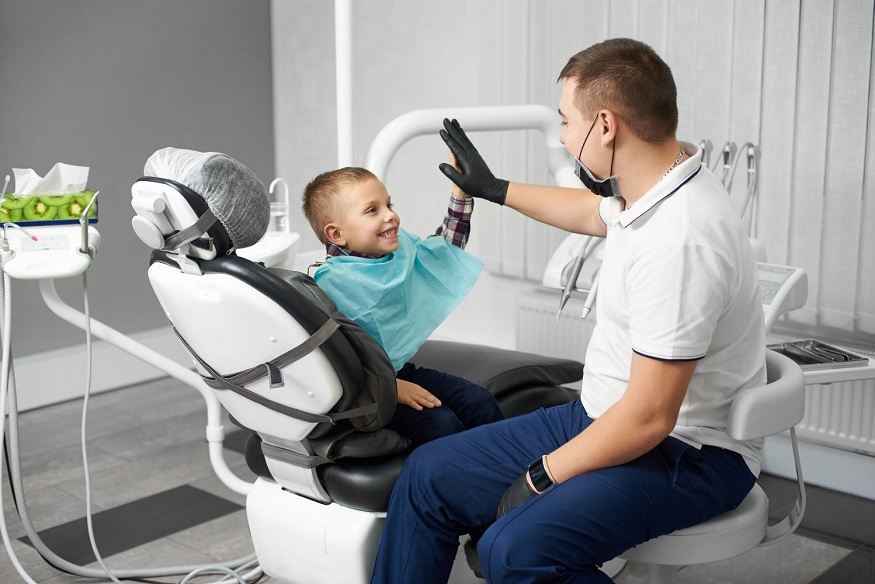One of the most common dental concerns among children and toddlers is cavities. Cavities are a result of tooth decay and often develop in baby/primary teeth. Unfortunately, a lot of parents ignore cavities and tooth decay, assuming that their child will lose these teeth anyway. However, ignoring a cavity is never recommended. In fact, children need to see a pediatric dentist in Fairfield, CA, by the age of one and should keep up with periodic appointments. In this post, we will discuss more about cavities in children, including causes, treatments, and more.
What causes cavities in kids?
When dental plaque impacts the enamel and causes a hole, it is called a cavity. Plaque is the sticky film that covers teeth and causes decay. Because plaque formation is often related to poor oral hygiene habits, cavities are often diagnosed in children who don’t brush and floss properly. The best way to avoid this is by inculcating good dental care habits early. If you don’t know how to explain the details to your child, consider taking them to the dentist. Also, until the age of six, children are often unable to brush effectively, so an adult should do that. Cavities are often associated with improper or lack of flossing. Children need to floss once a day like adults. There are also other factors that can contribute to tooth decay and cavities, including diet. If your child eats a lot of sugary foods and beverages, they are at a higher risk of decay.
Spotting the signs
Children often may not have any signs of cavities, and as a parent, you have to do oral exams at home to find telltale signs of dental concerns. The most common symptom is dark or white spots on the teeth. If the child has pain or discomfort, they may act fussier or cry often. Tooth sensitivity is also another symptom; some kids may refuse food or have swelling inside the mouth.
Treatment for cavities in kids
Your dentist will usually recommend dental fillings for cavities. Fillings are used for permanent and baby teeth alike. The procedure is rather simple. Your dentist will first remove the decay and clean the affected tooth, after which they will fill the hole with a white composite material. Fillings help address the risk of further decay. Saving even baby teeth is recommended, as losing teeth early could impact permanent teeth. If the damage is severe or the decay has progressed, your dentist may recommend a crown. Extracting a tooth is only recommended when there is a deep infection. Expectedly, children don’t want to sit in the dental chair for long, and if your child is fidgety, you can ask your dentist about using laughing gas. Combined with local anesthesia, laughing has made the treatment easier for the little patient and dentist alike.
When a patient has too many cavities, the dentist may not do all the fillings at once. The purpose of scheduling more appointments is to reduce the discomfort and simplify the experience for kids.
Can you prevent dental cavities in children?
Yes, you can prevent cavities by teaching good oral hygiene practices to your child. Parents often need to show the way, so make sure you brush and floss with your child. Also, you must monitor the kid to ensure they are doing it right. Also, it is pertinent to schedule dental appointments every six months. If you are unable to spot the early signs of cavities or other teeth and gum issues, your pediatric dentist can. Remember, even toddlers with no teeth should have a clean mouth.
You can find pediatric dentists in Fairfield through recommendations or an online search.
